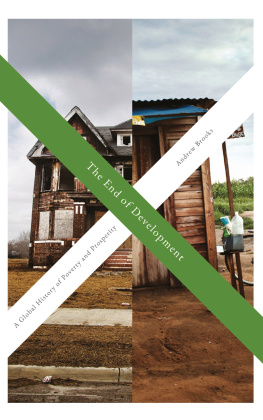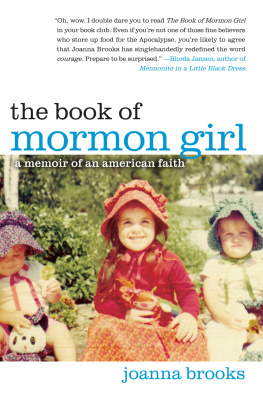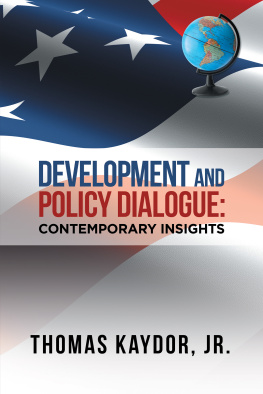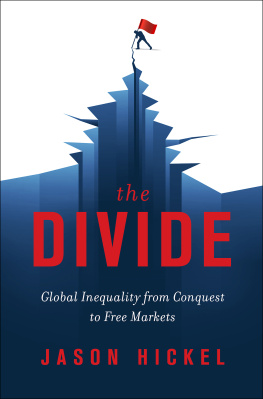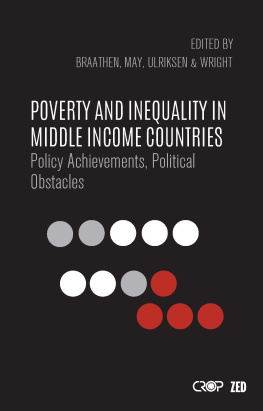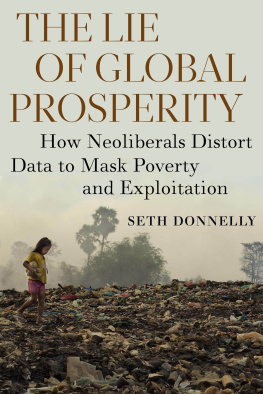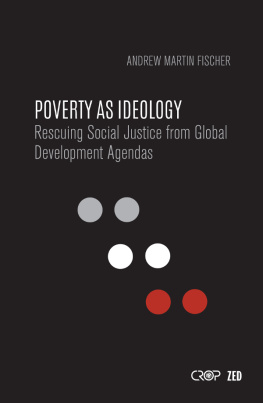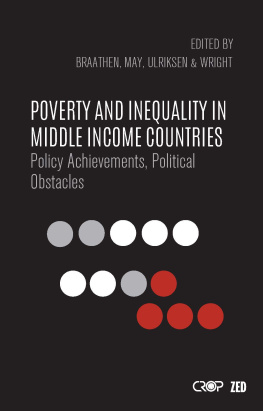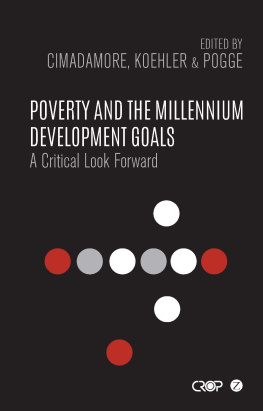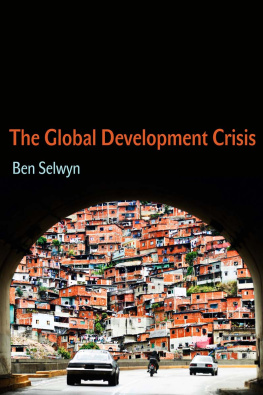about the author
A ndrew B rooks is a lecturer in development geography at Kings College London and an editor of the Journal of Southern African Studies . His research examines the history and politics of development, and particularly the geographies of economic and social change in Africa. Work has taken him around the world, from the rural Highlands of Papua New Guinea to the post- industrial ruins of urban Detroit, and he has led field trips among the skyscrapers of Hong Kong and the semi-deserts of southern Spain. Andrews primary research and publications on Africa have included extensive investigations of markets and politics in Malawi and Mozambique as well as Chinese investment in Zambia. His previous books include Clothing Poverty: The Hidden World of Fast Fashion and Second-Hand Clothes (Zed 2015 ).
THE END OF DEVELOPMENT
A global history of poverty and prosperity
andrew brooks
The End of Development: A Global History of Poverty and Prosperity was first published in 2017 by Zed Books Ltd, The Foundry, Oval Way, London SE RR, UK
www.zedbooks. net
Copyright Andrew Brooks
The right of Andrew Brooks to be identified as the author of this work has been asserted by him in accordance with the Copyright, Designs and Patents Act, 1988.
Typeset in Bulmer MT by Swales & Willis Ltd, Exeter, Devon
Index by Rohan Bolton
Cover design by Kika Sroka-Miller
Cover photos used with the permission of Panos
All rights reserved. No part of this publication may be reproduced, stored in a retrieval system or transmitted in any form or by any means, electronic, mechanical, photocopying or otherwise, without the prior permission of Zed Books Ltd.
A catalogue record for this book is available from the British Library.
ISBN -- 78699 -- hb
ISBN -- 78699 -- pb
ISBN -- 78699 -- pdf
ISBN -- 78699 -- epub
ISBN -- 78699 -- mobi
For Emma
Contents
Three American colonels
You can smell it greasy, salty and heavy in the air before you even reach the shopfront. Golden, crisp, succulent Kentucky Fried Chicken is one of the worlds favourite fast foods. An average American KFC Big Box Meal consists of three pieces of chicken plus mashed potatoes with gravy or French fries, coleslaw, a biscuit and a chilled fl oz Pepsi. A finger lickin good meal like this provides , calories and g of fat. Whether this fare represents a tasty lunch of comfort food or a foul feast of saturated fat is open to debate. The global popularity of fried chicken wings and Zinger burgers is not in doubt. Ominously, buckets of original recipe KFC have even featured on the last meal requests of convicted serial killers.
Colonel Harland Sanders established his fried chicken business in 1930 at a gas station in Corbin, Kentucky and it has spread to nearly , restaurants across countries. Around the world people are familiar with the image of the pale-white, white-suited and white-haired Colonel with the trimmed beard and spectacles, along with the heady aroma of deep fried chicken. KFC is one of the winners from economic globalization. China has recently overtaken the United States in the number of KFC Widespread calorie deficiencies are a far cry from the rich and fatty contents of a Big Box meal. The world can increasingly be divided between the over-eaters and the under-fed. Capitalism has helped connect different societies and spread patterns of consumption, but produced an uneven geography of human welfare.
Malawi, the small and impoverished warm-heart of Africa is one of the poorest nations on earth. By international standards living on less than $. 90 illustrates some stark global disparities, especially in terms of income. The average American earns times the average Malawian. A colossal difference. Although the cost of living in Malawi is lower than in the United States, and basic food and land tend to be cheaper, even when the figures are adjusted to show the comparable purchasing power of incomes in the United States versus Malawi the gap narrows but remains a chasm: $, to $,. Fifty Malawians together have the equivalent income of just one American. In contrast, increasing numbers of Chinese consumers are reaching parity with US citizens. In the Special Administrative Region of Hong Kong the purchasing power parity is $,; greater than the US average.
Why are more high-earning jobs located in the United States than in Malawi? And in Hong Kong relative to the rest of China? What is so special about American history that enabled a chicken restaurant from a small town to spread across the globe? Why does the world have the Kentucky Fried Chicken brand, rather than say Karonga Fried Chicken named after a district in Malawi, and advertised with the image of a much-loved, white-suited and white-haired African Colonel? The last question may sound fanciful, but to understand uneven development it is necessary to explain how geographical differences have been produced across time. Despite the insatiable rise of economic globalization, which has spread famous brands like KFC in the last half century, the world is largely divided into spaces of poverty and prosperity that are an outcome of a longer global history.
Africa is as important as any other place in global history, although in Western accounts the world outside Europe and America is often denied an equal voice. Later, the Colonel played a crucial role in bringing Elviss earth-shattering appearances to TV, changing the face of broadcasting forever, not just in the United States, but across the world. Hits like the -million-selling Hound Dog made Elvis a new breed of mega-star. Similarly, Parker became a pioneer by leading Elvis into mainstream cinema, including starring roles in the blockbuster movies GI Blues and Viva Las Vegas . Presley was in awe of Parker, and with him at the helm of his media career Elvis helped popularize US culture and spread the modern image of American life as an aspirational example to people all over the world, white spangled jumpsuit and all.
The three colonels from the worlds of business, entertainment and politics represent Americas international pre-eminence in the twentieth century. America had the power and influence to shape life in other nations and provided an aspirational example for people around the world in less-developed societies. Fast food, rock and roll and American diplomatic and military power were irresistible. Colonel Sanders, Colonel Parker and Colonel House all helped champion US might in different ways. They also have something distinctive in common; none of them were real colonels. Each received their title from a state governor. Parker was the only one with any military service and his brief stint as a private in the US Army ended in ignominy after he went AWOL. Much later Parker was awarded his rank by the Louisiana governor for political services. Sanders became a colonel in recognition of his services to Kentuckys state cuisine, and House acquired colonel as a courtesy title in Texas after becoming a power broker among southern democrats. This little-known third colonel is the more interesting figure in the history of global development and some further detail on his work helps frame how two interconnected processes of development are discussed through this book.
Two types of D/development
Every evening, with rare exception, Colonel House would sit down with his secretary Miss Frances B. Denton and record the days events. Denton was more a collaborator than a mere confidant and diarist.

